The Legislative Yuan yesterday passed amendments setting penalties for economic espionage of up to 12 years in prison or a NT$100 million (US$3.37 million) fine, and banning employees in key industries from traveling to China without permission, as it seeks to stifle theft of key technologies.
The first set of amendments to the National Security Act (國家安全法) stiffens penalties for helping China, Hong Kong, Macau, foreign countries or hostile foreign forces from obtaining, using or leaking business secrets involving “core” technologies through theft, cheating, coercion or reproduction without authorization.
Democratic Progressive Party (DPP) Legislator Chao Tien-lin (趙天麟) said the amendments would “make Taiwan a model student in a clean supply chain system.”
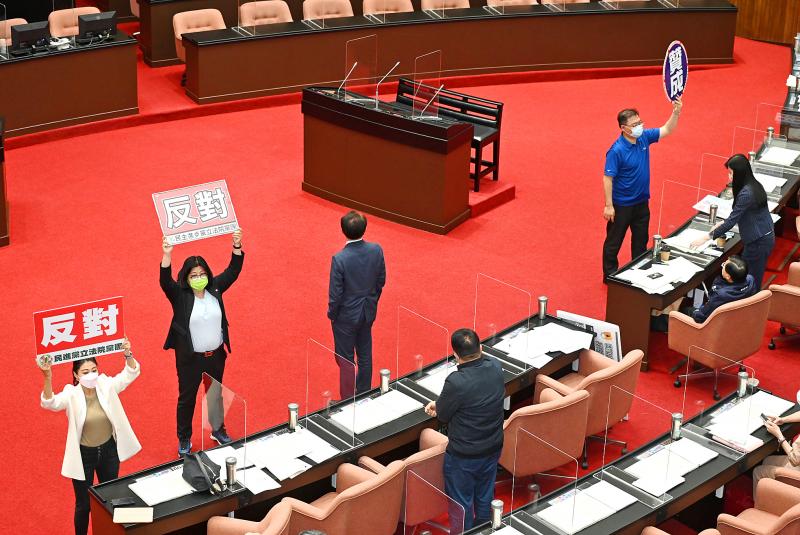
Photo: Tien Yu-hua, Taipei Times
As an advanced country capable of protecting business secrets, Taiwan should be included in mechanisms such as the US-led Indo-Pacific Economic Framework, Chao added.
Under the amendments, offenders could face five to 12 years in prison or a fine of NT$5 million to NT$100 million.
Meanwhile, the theft of confidential business information would be punishable by a fine of two to 10 times the resulting economic gains, the law states, noting that such profits could be huge.
The penalties also apply to three other forms of espionage: reproducing, using or leaking business secrets of core technologies without authorization or beyond their authorized scope; failing to delete, destroy or conceal business secrets after being told to do so by their owners; and obtaining, using or leaking business secrets despite knowing that they were obtained through criminal means.
If current or retired military personnel, civil servants or public employees are convicted of such a crime, they would forfeit the right to apply for pensions and would be compelled to return amounts already collected, the amendments say.
The Intellectual Property and Commercial Court would hear the first instance of economic espionage cases, and the High Court would hear the first instance of cases that do not involve business secrets or helping hostile foreign forces.
Prosecutors could issue an investigation confidentiality protective order, a breach of which could result in up to five years in prison or a fine of NT$1 million, according to the amendments.
A court could also establish either a dedicated tribunal or a dedicated division to handle cases under the law.
Also passed yesterday were amendments to the Act Governing Relations Between the People of the Taiwan Area and the Mainland Area (兩岸人民關係條例) forbidding Taiwanese from allowing Chinese-funded businesses to use their names to invest in Taiwan. Offenders could face fines of up to NT$2.5 million.
Chinese profitseeking enterprises that establish their own offices in Taiwan without approval are prohibited from conducting business in the country, while anyone who allows them to use their name to operate in Taiwan could face up to three years in prison or a fine of NT$15 million.
If people who engage in business involving core technologies travel to China without government approval, they could face fines of up to NT$10 million, according to the amendments.
DPP Legislator Chiang Yung-chang (江永昌) said that prosecutors sometimes defer prosecution or allow plea bargains when investigating economic espionage cases, as dealing with large enterprises can be challenging.
Taiwan People’s Party Legislator Chang Chi-lu (張其祿) called for caution when defining “core” technologies to balance national security and industrial development.
New Power Party Legislator Chiu Hsien-chih (邱顯智) agreed with the importance of defining “core” technologies and said that establishing a dedicated tribunal might be contradictory to the principle that cases should not be assigned to specific judges.
Additional reporting by CNA
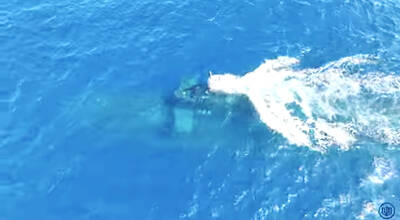
CSBC Corp, Taiwan (台灣國際造船) yesterday released the first video documenting the submerged sea trials of Taiwan’s indigenous defense submarine prototype, the Hai Kun (海鯤), or Narwhal, showing underwater navigation and the launch of countermeasures. The footage shows the vessel’s first dive, steering and control system tests, and the raising and lowering of the periscope and antenna masts. It offered a rare look at the progress in the submarine’s sea acceptance tests. The Hai Kun carried out its first shallow-water diving trial late last month and has since completed four submerged tests, CSBC said. The newly released video compiles images recorded from Jan. 29 to
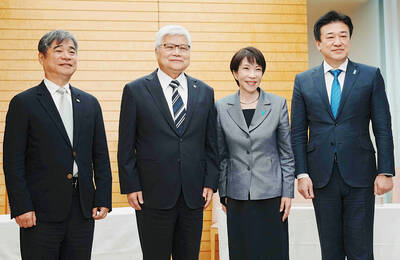
Taiwan Semiconductor Manufacturing Co (TSMC, 台積電) plans to make advanced 3-nanometer chips in Japan, stepping up its semiconductor manufacturing roadmap in the country in a triumph for Japanese Prime Minister Sanae Takaichi’s technology ambitions. TSMC is to adopt cutting-edge technology for its second wafer fab in Kumamoto, company chairman C.C. Wei (魏哲家) said yesterday. That is an upgrade from an original blueprint to produce 7-nanometer chips by late next year, people familiar with the matter said. TSMC began mass production at its first plant in Japan’s Kumamoto in late 2024. Its second fab, which is still under construction, was originally focused on
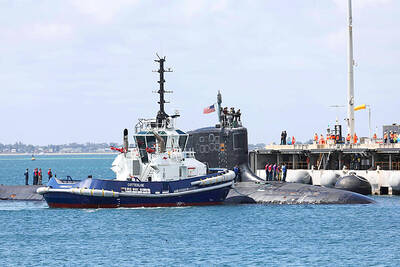
DETERRENCE EFFORTS: Washington and partners hope demonstrations of force would convince Beijing that military action against Taiwan would carry high costs The US is considering using HMAS Stirling in Western Australia as a forward base to strengthen its naval posture in a potential conflict with China, particularly over Taiwan, the Wall Street Journal reported on Saturday. As part of its Indo-Pacific strategy, Washington plans to deploy up to four nuclear-powered submarines at Stirling starting in 2027, providing a base near potential hot spots such as Taiwan and the South China Sea. The move also aims to enhance military integration with Pacific allies under the Australia-UK-US trilateral security partnership, the report said. Currently, US submarines operate from Guam, but the island could
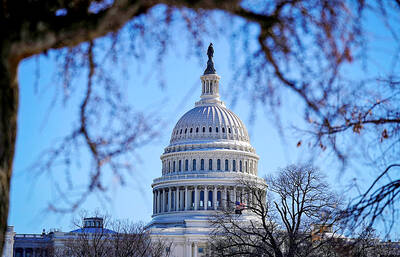
RESTRAINTS: Should China’s actions pose any threat to Taiwan’s security, economic or social systems, China would be excluded from major financial institutions, the bill says The US House of Representatives on Monday passed the PROTECT Taiwan Act, which states that Washington would exclude China from participating in major global financial organizations if its actions directly threaten Taiwan’s security. The bill, proposed by Republican Representative Frank Lucas, passed with 395 votes in favor and two against. It stipulates that if China’s actions pose any threat to Taiwan’s security, economic or social systems, the US would, “to the maximum extent practicable,” exclude Beijing from international financial institutions, including the G20, the Bank for International Settlements and the Financial Stability Board. The bill makes it clear that China must be prepared